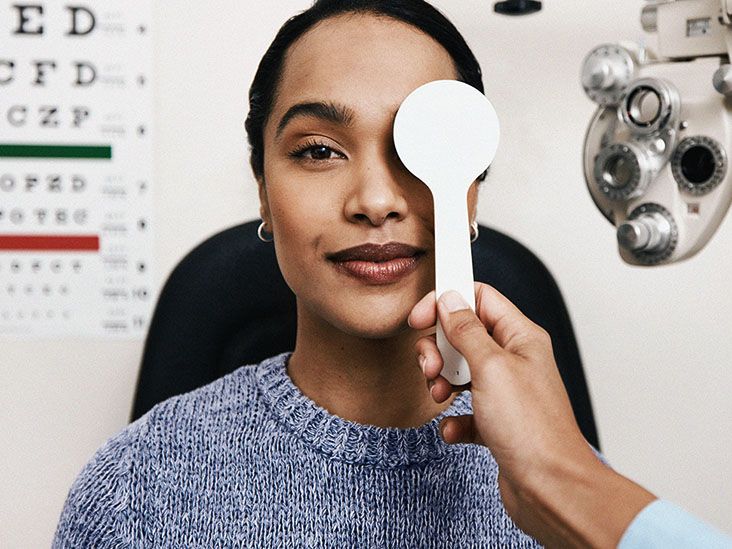Is Refractive Surgical Procedure Right for You? Elements to Consider for Better Eyecare
In the world of eye care, the choice to go through refractive surgery is a crucial one that demands thoughtful factor to consider. As individuals seek quality and freedom from the constraints of restorative lenses, numerous aspects enter play when determining the suitability of such a treatment. From the details of one's eye health to the complexities of individual expectations and daily practices, each element holds relevance in the more comprehensive landscape of refractive surgery candidacy. By assessing these crucial elements with treatment and accuracy, a more clear course in the direction of educated decision-making arises.
Eye Health Assessment
When taking into consideration refractive surgical treatment, a detailed eye health and wellness examination is critical to analyze the viability of the procedure for each individual. eye center andalusia. This evaluation involves a collection of evaluations and tests performed by an eye treatment expert to establish the general health of the eyes, the visibility of any type of underlying problems, and the security of the refractive mistake
Throughout the examination, different aspects are taken into consideration, such as the client's medical history, existing eye prescription, corneal density, pupil dimension, and tear film top quality. These evaluations aid to determine any contraindications to refractive surgical treatment, such as corneal abnormalities, cataracts, or unattended eye infections. Furthermore, the evaluation aids to manage individual assumptions relating to the potential results of the surgical procedure based upon their unique eye attributes.
Eventually, the eye wellness evaluation is vital in guaranteeing the security and performance of refractive surgical procedure, as it gives useful insights into the individual's eye health and wellness status and helps identify one of the most appropriate therapy alternatives for attaining optimum visual results. (neurologist andalusia)
Lifestyle Assessment
An extensive way of life evaluation is essential in identifying the suitability of refractive surgical procedure for a person's aesthetic modification requirements. Way of life elements such as occupation, leisure activities, and day-to-day tasks play a vital function in the decision-making process regarding refractive surgery. As an example, people with occupations that involve a high degree of physical task or direct exposure to environmental elements might have different visual needs contrasted to those with sedentary workdesk tasks. Recognizing exactly how a person's way of living may influence their vision post-surgery is necessary for handling assumptions and making sure optimal end results.
In addition, lifestyle routines such as sporting activities involvement, exterior tasks, and even skincare routines can affect the healing procedure and general success of refractive surgery. For example, people who participate in call sports may require to take added safety measures to secure their eyes throughout the recovery period. Furthermore, people with considerable sunlight exposure may require additional post-operative like stop difficulties. By conducting an extensive way of life analysis, eye treatment specialists can customize their referrals and therapy plans to meet the distinct requirements of each individual, eventually causing enhanced aesthetic end results and complete satisfaction.
Assumption Alignment

Establishing realistic expectations entails thorough pre-operative conversations between the client and the ophthalmologist. The surgeon needs to transparently interact the potential threats, advantages, and limitations of the treatment (eye doctors in andalusia). People require to comprehend that while several individuals achieve 20/20 vision or much better following refractive surgical procedure, some may still call for glasses for sure activities like analysis or driving at night. Taking care of these expectations aids avoid disappointment and discontentment post-surgery, leading to an extra positive general experience for the patient.
Threat Evaluation

Variables that may raise the risk of issues include age, specific clinical conditions like autoimmune illness, unpredictable vision prescription, thin corneas, and unrealistic person expectations. Furthermore, picking a competent and seasoned surgeon, complying with pre and post-operative treatment directions diligently, and disclosing any type of appropriate clinical history can assist reduce threats.
To minimize the possibility of issues, ophthalmologists carry out detailed pre-operative assessments to determine any type of contraindications to surgical procedure. They additionally discuss the potential dangers and benefits with clients throughout the examination procedure. By taking part in open interaction and shared decision-making, both the patient and the ophthalmologist can interact to determine if refractive surgery is the right choice based on individual risk accounts and wanted end results.
Appointment Relevance
Taking into consideration the essential duty of educated decision-making in examining dangers and prospective problems in refractive surgery, the consultation procedure holds substantial value in assisting clients towards optimum end results. During the assessment, the ophthalmologist reviews the individual's eye health and wellness, refractive mistakes, and general suitability for surgery. This first evaluation is important in determining one of the most appropriate procedure for each and every individual, taking into account variables such as corneal thickness, student dimension, and existing eye conditions.
Moreover, the appointment works as a possibility for people to discuss their assumptions, issues, and any concerns they may have relating to the surgery. Clear interaction between the person and the cosmetic surgeon is necessary to make certain reasonable assumptions and a comprehensive understanding of the possible dangers and advantages involved.
Furthermore, the consultation enables the surgeon to describe the various surgical choices readily available, their respective results, and the post-operative treatment required. This detailed conversation empowers individuals to make educated decisions regarding their eye treatment, bring about better fulfillment and end check over here results post-surgery.
Conclusion
In final thought, people taking into consideration refractive surgery ought to go through a thorough eye health evaluation, evaluate check these guys out their way of life behaviors, straighten their expectations with potential outcomes, evaluate the connected dangers, and prioritize examinations with eye care specialists. These elements play a vital duty in figuring out the suitability of refractive surgery for every person, making sure ideal end results and satisfaction with the procedure.
Individuals taking into consideration refractive surgery typically have high expectations relating to the outcomes, expecting excellent vision without the requirement for glasses or get in touch with lenses. While refractive surgical procedure can considerably enhance vision and decrease dependency on visual help, it is vital for individuals to comprehend that results might differ based on private elements such as the level of refractive mistake, corneal density, and overall eye health and wellness.
By involving in open interaction and shared decision-making, both the ophthalmologist and the person can function together to establish if refractive surgical procedure is the ideal choice based on specific danger profiles and wanted outcomes.
Considering the essential function of informed decision-making in analyzing dangers and possible issues in refractive surgery, the appointment process holds substantial significance in guiding individuals towards ideal outcomes. During the appointment, the ophthalmologist reviews the client's eye wellness, refractive errors, and total suitability for surgical treatment.